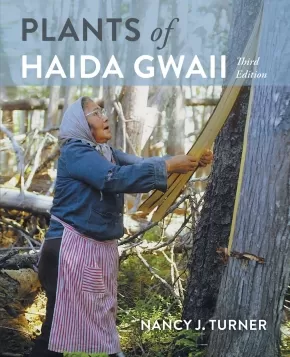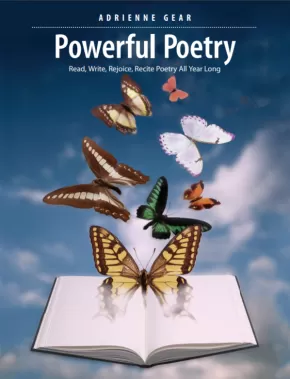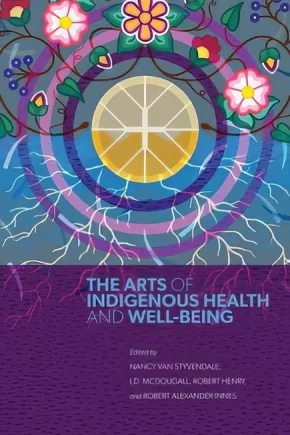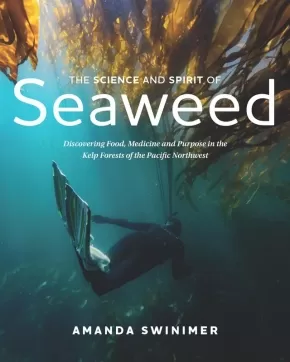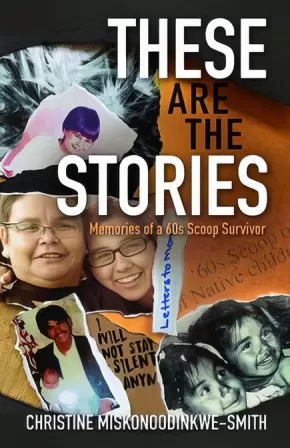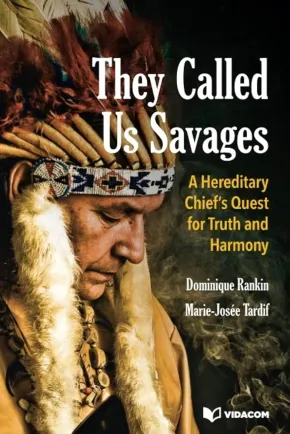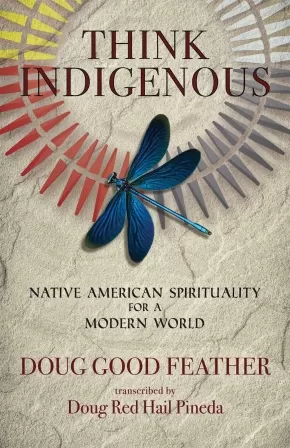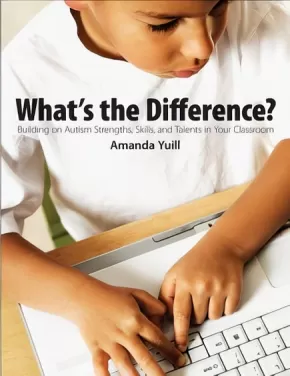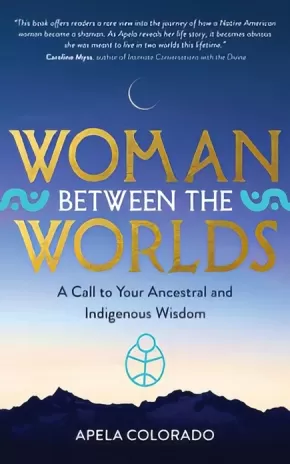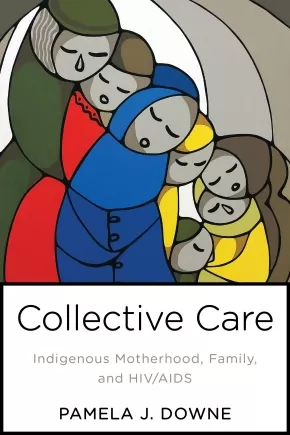Healing and Wellness
Synopsis:
For many thousands of years the lands and waters of Haida Gwaii have been home to the Haida. Plants of Haida Gwaii, written with the cooperation and collaboration of Haida knowledge holders and botanical experts, is a detailed and insightful record of the traditional uses of over 150 species of native plants. Moreover, it explains the systems of knowledge and understanding that enabled the Haida to use the resources of their islands sustainably from one generation to the next over millennia.
The Haida names of these plants indicate their importance, as do the many narratives featuring them. From the ts’uu—massive western red-cedars—of the forests which provide wood used for canoes, house posts, poles and boxes, and bark carefully harvested for weaving mats, baskets and hats, to the ngaal—tough, resilient fronds of giant kelp—used to harvest herring eggs, the botanical species used by the Haida are found from the ocean to the mountain tops, and are as important today as ever before. With over 250 photographs and illustrations, this book is both beautiful and informative.
Additional Information
272 pages | 7.50" x 9.25"
Authenticity Note: As there are contributions from Haida knowledge holders, this work has been labelled as containing authentic Indigenous text. It is up to readers to determine if this work is authentic for their purposes.
Synopsis:
The power of poetry is at your fingertips with Adrienne Gear’s latest book!
Powerful Poetry celebrates the beauty, power and pleasure of poetry in the classroom. This highly readable book outlines the many benefits of integrating poetry into your literacy program, including building reading, writing and speaking skills, nurturing creativity and celebrating language. Powerful Poetry provides practical, enjoyable lessons for integrating poetry into your year-long literacy program and engaging ways to introduce poetic structure, language, tools and devices. Book lists introduce a wide range of wonderful poems and poets. Ideal for new and experienced teachers who are looking to bring the power of poetry into their classroom.
Additional Information
128 pages | 8.38" x 10.88" | Paperback
Synopsis:
When students say that reading is boring, difficult or overwhelming, or they cannot find a good book, it is almost impossible to sell them on the idea that reading is fun and worthwhile. Sometimes Reading is Hard shows teachers how to develop the skills students need to be successful and how to cultivate passionate, lifelong readers. Classroom vignettes, promising practices and step-by-step activities illustrate how teachers can weave teaching the skills of reading, decoding, vocabulary, comprehension and fluency with real reasons to read. When students want to read and they enjoy it, their reading skills improve. With the right motivation, any student can become an enthusiastic reader.
Educator Information
Provides evidence and examples of the relationship between developing skills and becoming successful, capable readers.
Describes how to weave decoding, vocabulary, comprehension and fluency with the reasons that students want to read.
Additional Information
160 pages | 8.38" x 10.88" | Paperback
Synopsis:
Drawing attention to the ways in which creative practices are essential to the health, well-being, and healing of Indigenous peoples, The Arts of Indigenous Health and Well-Being addresses the effects of artistic endeavour on the “good life”, or mino-pimatisiwin in Cree, which can be described as the balanced interconnection of physical, emotional, spiritual, and mental well-being. In this interdisciplinary collection, Indigenous knowledges inform an approach to health as a wider set of relations that are central to well-being, wherein artistic expression furthers cultural continuity and resilience, community connection, and kinship to push back against forces of fracture and disruption imposed by colonialism.
The need for healing—not only individuals but health systems and practices—is clear, especially as the trauma of colonialism is continually revealed and perpetuated within health systems. The field of Indigenous health has recently begun to recognize the fundamental connection between creative expression and well-being. This book brings together scholarship by humanities scholars, social scientists, artists, and those holding experiential knowledge from across Turtle Island to add urgently needed perspectives to this conversation. Contributors embrace a diverse range of research methods, including community-engaged scholarship with Indigenous youth, artists, Elders, and language keepers.
The Arts of Indigenous Health and Well-Being demonstrates the healing possibilities of Indigenous works of art, literature, film, and music from a diversity of Indigenous peoples and arts traditions. This book will resonate with health practitioners, community members, and any who recognize the power of art as a window, an entryway to access a healthy and good life.
Reviews
“There is a genuinely beautiful life-force at work in this text: it’s artful and creative, readable and forceful. The objectives and scholarship throughout The Arts of Indigenous Health and Wellbeing are clear, grounded, rigorous and likely to make important contributions to knowledge and conversations about Indigenous health and the humanities in times and space of contemporary coloniality.” — Sarah de Leeuw
"The unique content of The Arts of Indigenous Health and Wellbeing may be useful for communities to heal, and to preserve cultural and traditional knowledge that can be passed down in the written form. The content can spark dialogue and learning by being discussed and used by families, generations, health providers/healers and a wide array of learners.”— Margot Latimer
Educator Information
Table of Contents
Ch 1: What This Pouch Holds
Ch 2: Baskets, Birchbark Scrolls, and Maps of Land: Indigenous Making Practices as Oral Historiography
Ch 3: For Kaydence and her Cousins: Health and Happiness in Cultural Legacies and Contemporary Contexts
Ch 4: Stories and Staying Power: Art-Making as (Re)Source of Cultural Resilience and Well-Being for Panniqtumiut
Ch 5: Healthy Connections: Facilitators’ Perceptions of Programming Linking Arts and Wellness with Indigenous Youth
Ch 6: Narrating Relations: Genetic Ancestry Testing and Alternarratives of Queer Kinship
Ch 7: The Doubleness of Sound in Canada’s Indian Residential Schools
Ch 8 Kissed by Lightning: Mediating Haudenosaunee Traditional Teachings through Film
Ch 9: Minobimaadiziwinke (Creating a Good Life): Native Bodies Healing
Ch 10: Body Counts: War, Pesticides and Queer Spirituality in Cherríe Moraga’s Heroes and Saints
Ch 11: “The Song of the Starved Soul”
Ch 12 Sakihiwawin: Land’s Overflow into the space-tial “Otherwise”
Additional Information
240 pages | 6.00" x 9.00" | Paperback
Synopsis:
Sustainable Pacific Northwest-based seaweed harvester Amanda Swinimer describes the ecology, culinary uses, evidence-based health benefits and climate change-resisting potential of seaweed and shares highlights from her remarkable life beneath the waves.
Related to the most ancient living organisms on earth, seaweeds are incredible and unique life forms, sharing qualities with both plants and animals, as well as fungi. They have been prized as a nutrient-dense food source for millennia and contain essential vitamins, minerals and fatty acids, protein and fibre as well as biologically active compounds not found anywhere else in nature. Seaweeds are also a source for innovations combating climate change due in part to their ability to absorb massive quantities of carbon dioxide.
Based in the Pacific Northwest, home to the greatest cold-water seaweed diversity in the world, Amanda Swinimer has made her living from the sustainable harvest of seaweeds for over two decades. In The Science and Spirit of Seaweed, Swinimer reflects on the journey that led to her successful seaweed harvesting business and provides identification information, ecologically sound harvesting techniques, traditional medicinal application and evidence-based health information for more than twenty varieties of seaweeds commonly found from California to Alaska. She also includes notes on culinary and skin-care uses for several types of seaweeds.
Complemented by vibrant underwater photography, beautiful illustrations and chef-inspired recipes, this volume richly conveys the benefits and wonder of living in harmony with the ocean. It will be a welcome resource to beachcombers, foragers and anyone fascinated by the marvels of the natural world.
Reviews
"This beautiful book will appeal to poets and photographers as surely as it will to scientists, dreamers, harvesters and beachwalkers–every page opening a little window to the soul of the sea and all that dwells within. A timely salute to the synergy between man, ocean, plant, animal, place, spirit and science." — Prannie Rhatigan, author of Irish Seaweed Kitchen, July 2021
"This tour through Amanda Swinimer’s Mermaid Garden ebbs and flows through seaweed fact and the author’s fantasies and reminiscences, punctuated by Chris Adair’s surreal photos of Amanda suspended mid-water. Red, green and brown seaweeds are described with culinary, health and spa anecdotes. Thirty pages are dedicated to "Seaweed & Health," where the promise of seaweed in the treatment and prevention of diseases, many associated with aging, is explored (this section is neatly referenced). Fitting to Amanda’s sprinkling of ecological concern throughout the book, is the section on "Algae: A Global Perspective." Here we glimpse the role of seaweeds in moderating our abused environment and being the prime producer energizing the coastal ecosystem. The recipes are a pleasure. They are original. Many are provided by featured chefs. Swinimer has created a delightful, readable, informative and richly illustrated resource on seaweeds that I highly recommend." — Louis Druehl, author of Pacific Seaweeds: A Guide to Common Seaweeds of the West Coast, July 2021
"This beautifully written book is an irresistible and unique fusion of practical field guide, personal memoir and warm wisdom of how to live well in a home place. A wonderful ramble through the world of seaweeds from basic identification and natural science to culinary uses and medicine, Amanda’s creation brings us into her sphere by melding science, love and reverence in an inspiring ode to these humble but magnificent species." — Fiona Hamersley Chambers, ethnobotanist and owner of Metchosin Farm, July 2021
Additional Information
256 pages | 8.00" x 10.00" | 300 photos | Paperback
Synopsis:
These are the Stories is a memoir presented in short chapters, comprising the life of a survivor of the Sixties Scoop. Christine Miskonoodinkwe Smith reveals her experiences in the child welfare system and her journey towards healing in various stages of her life. As an adult, she was able to reconnect with her birth mother. Though her mother passed shortly afterward, that reconnection allowed the author to finally feel "complete, whole, and home." The memoir details some of the author's travels across Canada as she eventually made a connection with the Peguis First Nation in Manitoba.
A memoir in the vein of Colleen Hele Cardinal's Raised Somewhere Else and Alicia Elliot's A Mind Spread Out On the Ground, These are the Stories is an inspirational and courageous telling of a life story.
Additional Information
170 pages | 5.50" x 8.50" | Paperback
Synopsis:
Young Dominique Rankin was intended to succeed his father as Algonquin Hereditary Chief and Medicine Man. Before that could happen, the Government of Canada’s policies of Indigenous assimilation wrested the boy from his home to entrust him to the infamous Indian residential school system. There, like thousands of Indigenous children across North America, Dominique would endure a terrible ordeal. Only upon leaving the school years later would the young man finally be free to begin a long journey of healing and self-discovery that would reunite him with his heritage and his true destiny.
Weaving the Prophecy of the Seven Fires’ teachings with the powerful narrative of his own tumultuous life, Chief Dominique Rankin delivers a vibrant testimony on respect, forgiveness, and healing. In this poignant memoir, the residential school Survivor, Elder, Medicine Man, and former Grand Chief of the Algonquin Nation bares all—the dark and the light alike—to unshroud a chapter of our sombre collective past and to illuminate a path to a better, brighter future.
Additional Information
160 pages | 6.00" x 9.00" | Paperback
Synopsis:
A guide to integrating indigenous thinking into modern life for a more interconnected and spiritual relationship with our fellow beings, Mother Earth, and the natural ways of the universe.
With each generation, we have drifted further and further away from our ability to recognize and connect with the source of our original design. In this modern world, we spend our attention in ways that benefit the powers that be, and not ourselves or the earth.
This book's intention is not to teach you to "be Native American," but instead to use the indigenous culture of the Lakota to help you connect with your own indigenous roots and help you remember your ancestral knowing that all beings are divinely connected.
Thinking indigenously centers around three concepts:
1) The way of the seven generations--conscious living
2) The way of the buffalo--mindful consumption
3) The way of the village--collective impact
Author Doug Good Feather, with Doug Pineda, shares the knowledge that has been handed down through his Lakota elders to help you connect with your purpose in life, personal power, and place in this interconnected web with Spirit, Mother Earth, and humanity as a whole.
Additional Information
176 pages | 5.50" x 8.50"
Synopsis:
Richard Wagamese, one of Canada’s most celebrated Indigenous authors and storytellers, was a writer of breathtaking honesty and inspiration. Always striving to be a better, stronger person, Wagamese shared his journey through writing, encouraging others to do the same.
Following the success of Embers, which has sold almost seventy thousand copies since its release in 2016, this new collection of Wagamese’s non-fiction works, with an introduction by editor Drew Hayden Taylor, brings together more of the prolific author’s short writings, many for the first time in print, and celebrates his ability to inspire. Drawing from Wagamese’s essays and columns, along with preserved social media and blog posts, this beautifully designed volume is a tribute to Wagamese’s literary legacy.
Reviews
"Treasure these words. Honour his thoughts. But don’t read it too fast. Soak it in. Enjoy every morsel. Linger on each page because every paragraph has nuggets of understanding. Lines of wisdom. Stories to appreciate." — Drew Hayden Taylor
Additional Information
176 pages | 5.50" x 8.00" | Hardcover
Synopsis:
What’s the difference between teaching our students and our autistic students? Not much. This practical book argues that all students are unique. It focuses on integrating teaching autistic students into the teaching practice of the whole class. Based on extensive classroom experience, this highly readable book is full of anecdotes about engaged students growing in their learning. Lesson plans and checklists throughout the book help teachers get to know autistic students and help them with school work, emotional regulation, communication, socializing and staying safe. This timely book champions getting rid of labels so teachers can know every student as an individual.
Educator Information
Explores how to teach autistic students and improve the learning experience for all students.
Features anecdotes from real classrooms supported by relevant research.
Lesson plans and checklists throughout the book help implement strategies.
Additional Information
124 pages | 8.38" x 10.88" | Paperback
Synopsis:
Apela Colorado shares her knowledge and experiences of indigenous wisdom and promotes an understanding between the indigenous and modern world perspectives. A journey back in time to preserve a connection to the ancestors, open a door to indigenous wisdom and healing and reclaim a Creation story for the future.
Inspirational world authority on indigenous wisdom Apela Colorado works internationally to preserve the wisdom of indigenous elders from around the world. In this powerful and inspirational book, she weaves together an intricate and beautiful insight into the way that indigenous people see the world.
She shares her experiences as a Native American woman growing up in rural Wisconsin, who stepped out of her tribe to become one of the first Native American women to study at Harvard. Her passion for the indigenous way of life leads her to travel the world, meeting indigenous elders and setting up projects to promote understanding between the indigenous and Western world view.
This powerful book contains a unique and magical glimpse into the minds of those elders and will inspire us all to reconnect more closely with our own ancestral wisdom.
Reviews
"Nothing is more essential for the future of the planet than an honoring and integration of indigenous wisdom in every realm. In this brilliant poignant profound superbly written book, Apela Colorado offers us the treasures of a lifetime of shamanic passion and practice as well as a practical template for all of us to start our journey’s home to celebrating and protecting the creation and ourselves. This essential book should be in the backpack of every seeker, every policy maker and all those passionately concerned for the birth of a new humanity." —Andrew Harvey
Additional Information
288 pages | 5.50" x 8.50"
Synopsis:
Beautiful and delicious gluten-free, grain-free, and dairy-free recipes, fully endorsed by Whole30.
As millions of people know, one of the toughest things about completing the Whole30 is figuring out what to eat the other 335 days of the year. Kirsten Buck, creator of Buck Naked Kitchen, struggled with her weight and chronic eczema for years before she transformed her life through food. She adopted a mostly paleo way of eating--gluten-free, grain-free, dairy-free, healthy fats, no refined sugars--and experienced dramatic weight loss. Soon after she went on to win the first-ever "Next Whole30 Star" competition and is now a certified holistic nutritionist, sharing delicious and beautiful recipes on her blog and Instagram with thousands of fans. From her Pesto Chicken Salad Sandwich for lunch, to Moroccan Lamb Stew for dinner, to the stunning Summer Berry Galette to satisfy your sweet tooth, there is something for every taste. In addition, there are recipe basics for making your own mayo, yogurt, salad dressings, tahini, and more, which prove that healthy eating doesn't have to break the bank.
Reviews
“[Buck Naked Kitchen] combines Kirsten’s education as a certified holistic nutritionist with her background and experience focusing on whole foods and creating healthy, approachable and delicious meals. Not only is every recipe gluten, grain AND dairy-free, did I also mention the Manitoba favourite: chicken tenders and HONEY DILL?! You gotta try it!”—Travel Manitoba
What I see in this book is a woman showing up as her truest, most authentic self, using food to speak to us, to connect with us, and to show us and herself love. Kirsten has brought her journey into the light, and the joy, vibrancy, and newfound confidence with which she both cooks and moves through this world glows through these pages.”—from the Foreword by Melissa Urban, Whole30 Co-Founder and CEO
“There are so many classic recipe staples in Kirsten's cookbook that it deserves a permanent place on every kitchen counter! I felt like she invited me into her home and showed me how to cook nourishing food from scratch. The photography is beautiful and Kirsten's approach to food is so effortless and natural.”—Joy McCarthy, bestselling author of Joyous Health and The Joyous Cookbook
Additional Information
272 pages | 8.25" x 9.31" | Full-colour photos throughout | Hardcover
Synopsis:
Collective Care provides an ethnographic account of urban Indigenous life and caregiving practices in the face of Saskatchewan’s HIV epidemic. Based on a five-year study conducted in partnership with AIDS Saskatoon, the book focuses on the contrast between Indigenous values of collective kin-care and non-Indigenous models of intensive maternal care. It explores how women and men negotiate the forces of HIV to render motherhood a site of cultural meaning, personal and collective well-being, and, sometimes, individual and community despair. It also introduces readers to how HIV is Indigenized in western Canada and how all HIV-affected and -infected mothers must negotiate this cultural and racialized terrain.
Featuring in-depth narrative interviews, notes from participant observation in AIDS Saskatoon’s drop-in centre, and a photovoice component, this book offers an accessible account of an engaged anthropologist’s work with a community that is both vulnerable and resilient. Each chapter begins with an ethnographic vignette that introduces central concepts, including medical anthropology, syndemics, kinship, and Indigeneity, with the overall aim of humanizing those affected by HIV in western Canada and beyond.
Reviews
"By sharing perspectives that are often ignored, this work provides important insight not found elsewhere. The reliance on the words of Indigenous women is a wonderful example of the kind of allyship we have been calling for. Rather than speaking for the women, Pamela J. Downe has created a literary space where they can speak for themselves. The truth of their stories comes through in vibrant quotes about loving and raising children in a collective way." — Dawn Lavell-Harvard, Director of the First Peoples House of Learning, Trent University, and former President of the Native Women’s Association of Canada
"Collective Care icontributes to our understanding of Indigenous family life and the lives of those affected by HIV/AIDS. Because the book focuses on family relationships and care in a context that is somewhat familiar to students, yet different from more frequently studied communities with HIV/AIDS. This book will be a useful tool for teaching." — William McKellin, Assistant Professor in the Department of Anthropology, University of British Columbia
Educator Information
Table of Contents
Preface
Chapter 1: Beginning
Chapter 2: Family
Chapter 3: Motherhood
Chapter 4: Fatherhood
Chapter 5: Loss
Chapter 6: Love
Chapter 7: Closing
References
Additional Information
176 pages | 6.00" x 9.00" | Paperback
Synopsis:
This guide is designed to educate non-Indigenous counsellors on the impacts of the assimilation policies that still affect Indigenous people and communities. Mainstream counselling approaches are integrated with Indigenous spiritual healing practices for Indigenous clients and their families who have been impacted by sexual abuse. Indigenous cultures contain many strategies to help those who have been traumatized, and sharing this traditional knowledge with service providers will assist in the understanding of how to incorporate cultural strategies in their practices.
This book provides exercises and handouts.
Reviews
"I found this guide to be of tremendous benefit as an important first step for reconciliation for social workers, counsellors and psychologists in the era of reconciliation. This guide provides a literature review combined with a detailed list of practice activities and case illustrations to show of how traditional healing ceremonies and traditions can be used effectively with counselling." — Donalda Halabuza, PhD, Faculty of Social Work, University of Regina
"Decolonizing the Healing Process from Sexual Trauma is a riveting journey into the acquired base of a skilled therapist. Educating those in the mental health field, McArthur gently offers culturally appropriate guidance when working with First Nations people who have experienced sexual abuse." — Cyndi Gray Williams, MSW, RSW, DVATI, RCAT, SEP, Registered and Licensed Art Therapist, Master’s Prepared and Registered Clinician, Somatic Experiencing (TM) Trauma Practitioner
Additional Information
66 pages | 6.00" x 9.00"
Synopsis:
An exploration of anti-Indigenous systemic racism in Canadian health care and the medical establishment's role in colonial genocide.
Launched by healthcare providers in January 2018, the #aHand2Hold campaign confronted the Quebec government's practice of separating children from their families during medical evacuation airlifts, which disproportionately affected remote and northern Indigenous communities. Pediatric emergency physician Samir Shaheen-Hussain's captivating narrative of this successful campaign, which garnered unprecedented public attention and media coverage, seeks to answer lingering questions about why such a cruel practice remained in place for so long. In doing so it serves as an indispensable case study of contemporary medical colonialism in Quebec.
Fighting for a Hand to Hold exposes the medical establishment's role in the displacement, colonization, and genocide of Indigenous peoples in Canada. Through meticulously gathered government documentation, historical scholarship, media reports, public inquiries, and personal testimonies, Shaheen-Hussain connects the draconian medevac practice with often-disregarded crimes and medical violence inflicted specifically on Indigenous children. This devastating history and ongoing medical colonialism prevent Indigenous communities from attaining internationally recognized measures of health and social well-being because of the pervasive, systemic anti-Indigenous racism that persists in the Canadian public health care system - and in settler society at large.
Shaheen-Hussain's unique perspective combines his experience as a frontline pediatrician with his long-standing involvement in anti-authoritarian social justice movements. Sparked by the indifference and callousness of those in power, this book draws on the innovative work of Indigenous scholars and activists to conclude that a broader decolonization struggle calling for reparations, land reclamation, and self-determination for Indigenous peoples is critical to achieve reconciliation in Canada.
Reviews
"Fighting for a Hand to Hold denounces with ferocity the utterly inhuman, decades-long practice of separating children from their families during emergency medevacs in northern and remote regions of Quebec. In a precise, compelling, and well-documented narrative, Samir Shaheen-Hussain challenges our collective understanding of systemic racism and social determinants of health applied to Indigenous communities most dependent on medevac airlifts and most impacted by the non-accompaniment rule. An eye-opening, tough, and essential book." — Dr Joanne Liu, pediatric emergency physician and former international president of Médecins Sans Frontières
"In Fighting for a Hand to Hold Samir Shaheen-Hussain exposes the social, cultural, and historical structures that allow medical colonialism to hide in plain sight as it harms generations of Indigenous children and their families. It is an unflinching analysis that should be required reading in every medical school in the country." —Maureen Lux, professor, Brock University and author of Separate Beds: A History of Indian Hospitals in Canada, 1920s-1980s
"The memories of the Inuit children I attended as a young interpreter at the Montreal Children's Hospital came flooding back to me. The sad face of a child looking up at me: nurses informed me that he was not speaking, but I immediately recognized the fear in his face, in his eyes. As soon as I spoke to him in Inuktitut, he looked at me in disbelief, but in the next moment his tears began to roll and I could only sound out the Inuit sound of love, 'mmph,' and tell him it would be all right, that his mom or a relative would be arriving soon. I felt for that child, and as he began to relax and open up, we had a lovely conversation in Inuktitut. He did not feel so alone in this strange place he had just been deposited in, as if he were cargo. To this day, I still feel for him. Throughout all these years, we all have been made to believe that this is how things should work. It was one of those things we stayed quiet about for decades. But no longer. We Inuit, we are a people. We love our children. Fighting for a Hand to Hold helps us understand the issues of colonization in the medical system that have vexed us as Indigenous peoples. Today, we Inuit are working to bring our health back to our communities. Healthy communities and families mean self-governance to us, and the decolonization process will happen." - Lisa Qiluqqi Koperqualuk, vice-president of international affairs, Inuit Circumpolar Council Canada
Educator Information
Foreword by Cindy Blackstock, afterword by Katsi'tsakwas Ellen Gabriel
Table of Contents
Figures | xiii
Foreword Cindy Blackstock | xv
Preface and Acknowledgments | xxi
A Note to Readers | xxix
Part One Above All, Do No Harm
Timeline | 3
Introduction | 7
1 Medevac Airlifts in Quebec and the Non-Accompaniment Rule | 16
2 The #aHand2Hold Campaign: Confronting a System | 27
Part Two Structural Fault Lines in Health Care
3 Social Determinants of Health: Equality, Equity, and Limitations | 47
4 Recognizing Systemic Racism: A Social Justice Approach | 66
5 Medical Culture and the Myth of Meritocracy | 90
Part Three Medical Colonialism and Indigenous Children
6 A Little Matter of Genocide: Canada and the United Nations Convention | 113
7 From the Smallpox War of Extermination to Tuberculosis Deaths in Residential Schools | 122
8 Experimental Laboratories: Malnutrition, Starvation, and the BCG Vaccine | 135
9 Cruel Treatment: Indian Hospitals, Sanatoria, and Skin Grafting | 150
10 Gendered Violence: Forced Sterilization and Coercive Contraception | 165
11 Breaking Up Families: Child Welfare Services, Mass Evacuations, and Medical Disappearances | 179
12 Oral Histories and the Narrative of Genocide | 207
Part Four The Structural Determinants of Health and Decolonizing Our Future
13 Capitalism and the Cost of Caring | 217
14 History Matters: Colonialism, Land, and Indigenous Self-Determination | 236
15 Decolonizing Health Care: Reparations before Reconciliation | 253
Conclusion | 271
Afterword Katsi’tsakwas Ellen Gabriel | 277
References | 283
Index | 315
Additional Information
360 pages | 5.98" x 9.01" | 4 maps, 8 illustrations | Hardcover

